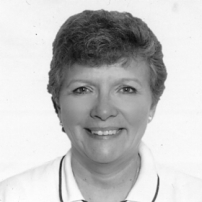|
How Is It That People With Autism in Peru are Economically and Meaningfully Supporting Their Families? |
| Thursday, February 2, 2017 |
| 8:30 AM–9:20 AM |
| San Juan Grand Ballroom |
| Area: AUT; Domain: Basic Research |
| Instruction Level: Basic |
| CE Instructor: R. Douglas Greer, Ph.D. |
| Chair: R. Douglas Greer (Columbia University Teachers College and Graduate School of Arts and Sciences) |
| LILIANA MAYO (Centro Ann Sullivan del Peru) |
 Dr. Liliana Mayo received her doctoral training in the Department of Applied Behavior Science at the University of Kansas. She is the founder and executive director of Centro Ann Sullivan del Peru (CASP), in Lima, Peru, which serves more than 400 students with different abilities (especially those with the most severe limitations) and their families. Dr. Mayo is a professor of special education at the Universidad Peruana Cayetano Heredia and the Universidad Catolica, in Peru, and an Adjunct Faculty Member in the Department of Applied Behavior Sciences at the University of Kansas. Also she is a member of the National Council of Education in Peru. She is the representative of CASP in the formal cooperative agreement between CASP and the Schiefelbusch Institute for Research in Life Span Studies at the University of Kansas, in the United States. Dr. Mayo has received numerous awards and recognitions due to her contributions to the development of successful practices that promote progress and full inclusion of people with different abilities in society through the high participation of parents in the School of Families, and the implementation of effective educational programs following a Functional Natural Curriculum. Among them are the Queen Sofia of Spain 1999, Award for Rehabilitation and Integration, the International Dissemination of Applied Behavior Analysis award in 2000, the Peruvian Government that is the Order "El Sol del Peru" in the Commander Grade in 2007. She was honored by the government of Panama with the Order "Maria Ossa de Amador" in the Grade of Grand Medal in 2012 and for the government of Domenican Republic, with "Christopher Columbus' Heraldic Order" in 2014. Dr. Liliana Mayo received her doctoral training in the Department of Applied Behavior Science at the University of Kansas. She is the founder and executive director of Centro Ann Sullivan del Peru (CASP), in Lima, Peru, which serves more than 400 students with different abilities (especially those with the most severe limitations) and their families. Dr. Mayo is a professor of special education at the Universidad Peruana Cayetano Heredia and the Universidad Catolica, in Peru, and an Adjunct Faculty Member in the Department of Applied Behavior Sciences at the University of Kansas. Also she is a member of the National Council of Education in Peru. She is the representative of CASP in the formal cooperative agreement between CASP and the Schiefelbusch Institute for Research in Life Span Studies at the University of Kansas, in the United States. Dr. Mayo has received numerous awards and recognitions due to her contributions to the development of successful practices that promote progress and full inclusion of people with different abilities in society through the high participation of parents in the School of Families, and the implementation of effective educational programs following a Functional Natural Curriculum. Among them are the Queen Sofia of Spain 1999, Award for Rehabilitation and Integration, the International Dissemination of Applied Behavior Analysis award in 2000, the Peruvian Government that is the Order "El Sol del Peru" in the Commander Grade in 2007. She was honored by the government of Panama with the Order "Maria Ossa de Amador" in the Grade of Grand Medal in 2012 and for the government of Domenican Republic, with "Christopher Columbus' Heraldic Order" in 2014. |
| Abstract: How is it that the best businesses in Peru hire people with autism, some who have worked for 20 years continuously? Because they have found that people with autism are good workers, don't gossip, ask for more work, and are loyal to the business where they work. Centro Ann Sullivan del Peru (CASP) has more than 100 students working in 43 businesses; 60% of them have autism. All receive the same pay and benefits as other employees and are included in all social activities in their work places. Many help their families economically by paying for utilities like water and electricity, paying for the medication of their parents, or even starting the construction of their own home. CASP students/workers receive the same social benefits as all Peruvian workers. It is important that persons with autism, especially those from extreme poverty, work in a supported employment program because it leads to including them in all aspects of society and because it leads to poverty reduction. |
| Target Audience: Certified behavior analysts, licensed psychologists, graduate students. |
| Learning Objectives: At the conclusion of the presentation, participants will be able to: (1) state the three goals that the Centro Ann Sullivan-CASP has for students with autism; (2) describe the three critical elements of the CASP model that make it possible for people with autism in Peru to not only work but to economically and meaningfully support their families. |
|
| |
| |
|
| Observational Learning and Children With Autism: Clinical Applications Across the Age Span |
| Thursday, February 2, 2017 |
| 9:30 AM–10:20 AM |
| San Juan Grand Ballroom |
| Area: AUT; Domain: Basic Research |
| Instruction Level: Basic |
| CE Instructor: Bridget A. Taylor, Ph.D. |
| Chair: Brian D. Greer (Munroe-Meyer Institute, University of Nebraska Medical Center) |
| BRIDGET A. TAYLOR (Alpine Learning Group) |
 Dr. Bridget A. Taylor is co-founder and executive director of Alpine Learning Group and is Senior Clinical Advisor for Rethink. Dr. Taylor has specialized in the education and treatment of children with autism for the past 27 years. She holds a Doctorate of Psychology from Rutgers University, and received her Master's degree in Early Childhood Special Education from Columbia University. She is a Board Certified Behavior Analyst and a Licensed Psychologist. She is an Associate Editor for the Journal of Applied Behavior Analysis and serves on the editorial board of Behavioral Interventions. She is a member of the Behavior Analyst Certification Board and serves on the Autism Advisory Group for the Cambridge Center for Behavioral Studies. Dr. Taylor also serves on the Scientific and Community Advisory Board for SPARK, a new program at the Simon's Foundation Autism Research Initiative. Dr. Taylor is active in the autism research community and has published numerous articles and book chapters on effective interventions for autism. She is a national and international presenter and serves in an advisory capacity for autism education and treatment programs both locally and abroad. Dr. Bridget A. Taylor is co-founder and executive director of Alpine Learning Group and is Senior Clinical Advisor for Rethink. Dr. Taylor has specialized in the education and treatment of children with autism for the past 27 years. She holds a Doctorate of Psychology from Rutgers University, and received her Master's degree in Early Childhood Special Education from Columbia University. She is a Board Certified Behavior Analyst and a Licensed Psychologist. She is an Associate Editor for the Journal of Applied Behavior Analysis and serves on the editorial board of Behavioral Interventions. She is a member of the Behavior Analyst Certification Board and serves on the Autism Advisory Group for the Cambridge Center for Behavioral Studies. Dr. Taylor also serves on the Scientific and Community Advisory Board for SPARK, a new program at the Simon's Foundation Autism Research Initiative. Dr. Taylor is active in the autism research community and has published numerous articles and book chapters on effective interventions for autism. She is a national and international presenter and serves in an advisory capacity for autism education and treatment programs both locally and abroad. |
| Abstract: Observational learning is the acquisition of new behavior that results from observing the behavior of others and the consequences of that behavior (Catania, 1998). Observational learning has significant educational, economic, and social implications. If children with autism can learn new behaviors by watching others, this could result in a reduction in intensive individual instruction and alleviate financial burdens on families and education providers. Additionally, observational learning can lead to the acquisition of academic and socially relevant behavior and potentially provide individuals with autism more opportunities for inclusion in typical learning and employment environments. An overview of emerging research in the area of observational learning will be presented, as well as clinical applications to improve the observational learning skills of individuals with autism across the age span. |
| Target Audience: Certified behavior analysts, licensed psychologists, graduate students. |
| Learning Objectives: At the conclusion of the presentation, participants will be able to: (1) define observational learning according to Catania (1998); (2) describe instructional considerations when teaching children with autism to learn through observation. |
|
| |
| |
|
| Training Parents and Technicians to Implement Behavioral Protocols With High Integrity |
| Thursday, February 2, 2017 |
| 11:30 AM–12:50 PM |
| San Juan Grand Ballroom |
| Area: AUT; Domain: Applied Research |
| Chair: Wayne W. Fisher (Munroe-Meyer Institute, University of Nebraska Medical Center) |
| CE Instructor: Wayne W. Fisher, Ph.D. |
| Abstract: A fundamental and persistent challenge for behavior analysts since the inception of our field has been the development of behavioral interventions that produce enduring beneficial outcomes. Two of the most important variables affecting whether treatment effects maintain or whether relapse occurs are: (a) the extent to which parents, teachers, staff members, and other caregivers learn to implement the treatment with high procedural integrity; and (b) whether they continue to apply the treatment with fidelity when the professional behavior analyst is not present. In this symposium, three of our field’s leading experts will describe the best practices they have developed and tested for promoting the acquisition and maintenance of procedural integrity in the implementation of effective behavioral interventions by caregivers. Lynn Bowman of the Kennedy Krieger Institute will describe the development and implementation of a comprehensive staff training and management system. Rebecca MacDonald of the New England Center for Autism will demonstrate how video modeling can be used to produce large and rapid improvements in treatment implementation by both parents and staff. Finally, Cathleen Piazza will illustrate how effective in-clinic and telehealth parent-training strategies can be employed to promote accurate and sustained implementation of feeding interventions by parents in the home setting. |
| Instruction Level: Basic |
| Target Audience: Certified behavior analysts, licensed psychologists, graduate students. |
| Learning Objectives: At the conclusion of the presentation, participants will be able to: (1) state several examples of antecedent-based procedures that accomplish the standardization of staff training practices; (2) describe the purpose the Performance Diagnostic Checklist- Human Service and extrapolate potential applications of this tool in human service settings; (3) describe the early social deficits in children with autism; (4) describe how to use video modeling with voice-over narration and text to provide instructions to parents of children with autism; (5) discuss benefits of video based instruction for parents and the implications for widespread parent exposure to social skills programming for children with autism. |
| |
Developing Early Social Skills in Children With Autism: Training Parents and Professionals to Implement Social Skills Protocols |
| REBECCA P. F. MACDONALD (New England Center for Children) |
| Abstract: Some of the earliest identification markers that precede a diagnosis of autism are deficits in social behavior. Lack of eye contact, joint attention, and social referencing are the hallmarks of the disorder. Best outcomes have been achieved with early intensive behavior analysis which by definition involves implementation of behavioral protocols by skilled clinicians and parents. In our current work, we have found video modeling to be more effective than written instructions to teach both clinicians and parents to provide effective instruction in the area of joint attention. We have achieved high procedural integrity on a variety of protocols and children acquire the targeted skills quickly. The components of the video modeling instructional videos will be reviewed and a discussion of the importance of each element will be discussed. |
 Dr. Rebecca MacDonald is a Licensed Psychologist and a Board Certified Behavior Analyst who specializes in the education and treatment of children with autism through her work at the New England Center for Children. For the past 15 years she served as the Director of the Early Intensive Instructional Program providing EIBI to the youngest children with an ASD diagnosis at the center. She has faculty appointments at Simmons College and Western New England University. Dr. MacDonald received her doctorate in Developmental and Child Psychology from the University of Kansas. She regularly presents her research at national and international conferences and has published numerous articles and book chapters focusing on teaching social skills to children with autism. Her work has been support by both federal (NICHD) and private (OAR) grant sources. She recently served as a federal D.O.E. grant reviewer for the “Race to the Top” birth to 5 competitions. Her current research interests include assessing and teaching joint attention, the use of video modeling as a method of instruction for both children and teachers, and measuring clinical outcomes of early intensive behavior intervention. Dr. Rebecca MacDonald is a Licensed Psychologist and a Board Certified Behavior Analyst who specializes in the education and treatment of children with autism through her work at the New England Center for Children. For the past 15 years she served as the Director of the Early Intensive Instructional Program providing EIBI to the youngest children with an ASD diagnosis at the center. She has faculty appointments at Simmons College and Western New England University. Dr. MacDonald received her doctorate in Developmental and Child Psychology from the University of Kansas. She regularly presents her research at national and international conferences and has published numerous articles and book chapters focusing on teaching social skills to children with autism. Her work has been support by both federal (NICHD) and private (OAR) grant sources. She recently served as a federal D.O.E. grant reviewer for the “Race to the Top” birth to 5 competitions. Her current research interests include assessing and teaching joint attention, the use of video modeling as a method of instruction for both children and teachers, and measuring clinical outcomes of early intensive behavior intervention. |
| |
Training Parents to Implement Treatments for Pediatric Feeding Disorders |
| CATHLEEN C. PIAZZA (Munroe-Meyer Institute, University of Nebraska Medical Center) |
| Abstract: Children with autism spectrum disorder often display feeding problems (Schreck, Williams, & Smith, 2004). These feeding problems may result in diets that are nutritionally deficient and may place the child at risk for health, learning, and behavior problems. Treatments for pediatric feeding disorders based on applied behavior analysis are the only ones that have empirical support in the literature. Although these treatments are effective, caregiver training and follow through is a critical factor in maintaining their long-term efficacy. This presentation will show data on training caregivers to implement treatments for pediatric feeding disorders in clinic, home, and virtual settings. |
 Cathleen C. Piazza, Ph.D., is a professor of pediatrics and director of the Pediatric Feeding Disorders Program at the University of Nebraska Medical Center in Omaha. She previously directed similar programs at the Marcus Institute in Atlanta and at the Johns Hopkins University School of Medicine in Baltimore. Dr. Piazza and her colleagues have examined various aspects of feeding behavior and have developed a series of interventions to address one of the most common health problems in children. Her research in this area has been among the most systematic in the field and has firmly established behavioral approaches as preferred methods for assessment and treatment. In her roles as clinical, research, and training director, Dr. Piazza has mentored a large number of interns and fellows who have gone on to make significant contributions to the field. Highly regarded for her general expertise in research methodology, Dr. Piazza is a former editor of the Journal of Applied Behavior Analysis. Cathleen C. Piazza, Ph.D., is a professor of pediatrics and director of the Pediatric Feeding Disorders Program at the University of Nebraska Medical Center in Omaha. She previously directed similar programs at the Marcus Institute in Atlanta and at the Johns Hopkins University School of Medicine in Baltimore. Dr. Piazza and her colleagues have examined various aspects of feeding behavior and have developed a series of interventions to address one of the most common health problems in children. Her research in this area has been among the most systematic in the field and has firmly established behavioral approaches as preferred methods for assessment and treatment. In her roles as clinical, research, and training director, Dr. Piazza has mentored a large number of interns and fellows who have gone on to make significant contributions to the field. Highly regarded for her general expertise in research methodology, Dr. Piazza is a former editor of the Journal of Applied Behavior Analysis. |
| |
A Review of Best Practice Strategies on the Kennedy Krieger Institute's Neurobehavioral Unit: Selected Projects AImed at Improving Direct Care Performance |
| LYNN G. BOWMAN (Kennedy Krieger Institute and Johns Hopkins University School of Medicine), Samantha Hardesty (Kennedy Krieger Institute) |
| Abstract: The incidence rate for severe behavioral disorders is higher for individuals with autism and related disorders than for other populations (Smith, Russo, & Lee, 1999). The Neurobehavioral Inpatient Unit at Kennedy Krieger specializes in the assessment and treatment of approximately 40 such individuals and their families per year, and employs (a variety of) staff including approximately 120 entry-level direct care technicians. Successful treatment outcomes in the clients we serve are dependent not only on well-devised behavioral plans based on functional analysis results, but also on the integrity with which the treatment is implemented by staff. A high level of expertise and training is often needed for plan implementation; however, paraprofessionals often have little experience performing such plans prior to employment/admission. System-wide approaches, as well as more targeted efforts used on the NBU, will be discussed. Participants will glean effective strategies to implement in human service settings including the use of data and other best practice strategies to drive staff training projects. |
 Lynn is the Director of Direct Care Services and a Senior Behavior Analyst at the Kennedy Krieger Institute’s Neurobehavioral Unit (NBU), and is an Assistant Professor in the department of Psychiatry and Behavioral Sciences at the Johns Hopkins University School of Medicine. Lynn supervises behavior teams employing functional analysis and behavior analytic interventions aimed at addressing the severe behavior disorders of children with autism and related developmental disabilities. In addition, she oversees the NBU Direct Care Managers, the staff training team, the recruitment team, and approximately 120 direct care staff. Lynn’s research interests range from clinical practice (e.g., the interactive effects of pharmacologic and behavioral interventions) to questions related to organizational behavior and performance management (e.g., staff training and recruitment, hospital departmental policies and procedures, infection control, stakeholder satisfaction). Lynn is the Director of Direct Care Services and a Senior Behavior Analyst at the Kennedy Krieger Institute’s Neurobehavioral Unit (NBU), and is an Assistant Professor in the department of Psychiatry and Behavioral Sciences at the Johns Hopkins University School of Medicine. Lynn supervises behavior teams employing functional analysis and behavior analytic interventions aimed at addressing the severe behavior disorders of children with autism and related developmental disabilities. In addition, she oversees the NBU Direct Care Managers, the staff training team, the recruitment team, and approximately 120 direct care staff. Lynn’s research interests range from clinical practice (e.g., the interactive effects of pharmacologic and behavioral interventions) to questions related to organizational behavior and performance management (e.g., staff training and recruitment, hospital departmental policies and procedures, infection control, stakeholder satisfaction). |
|
| |